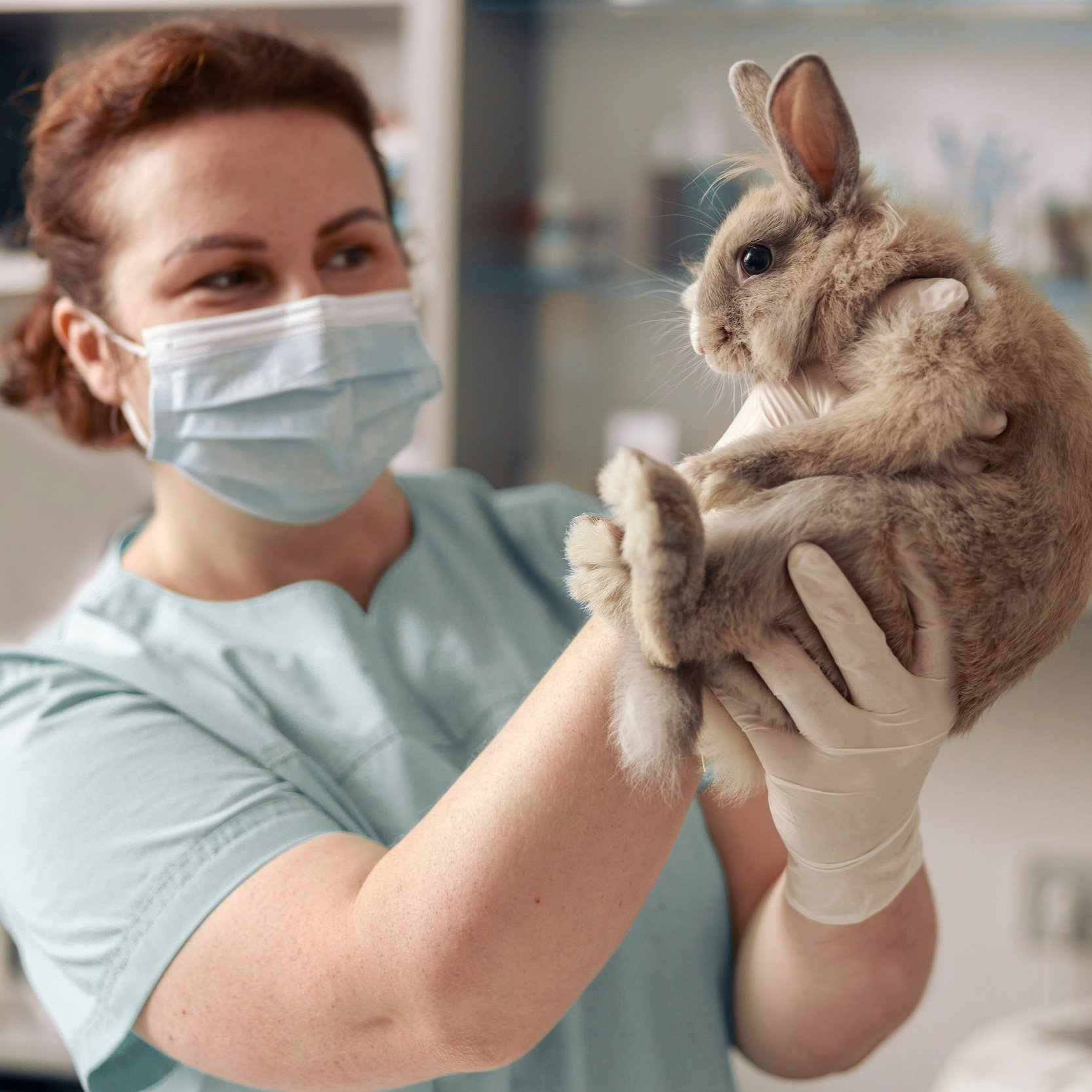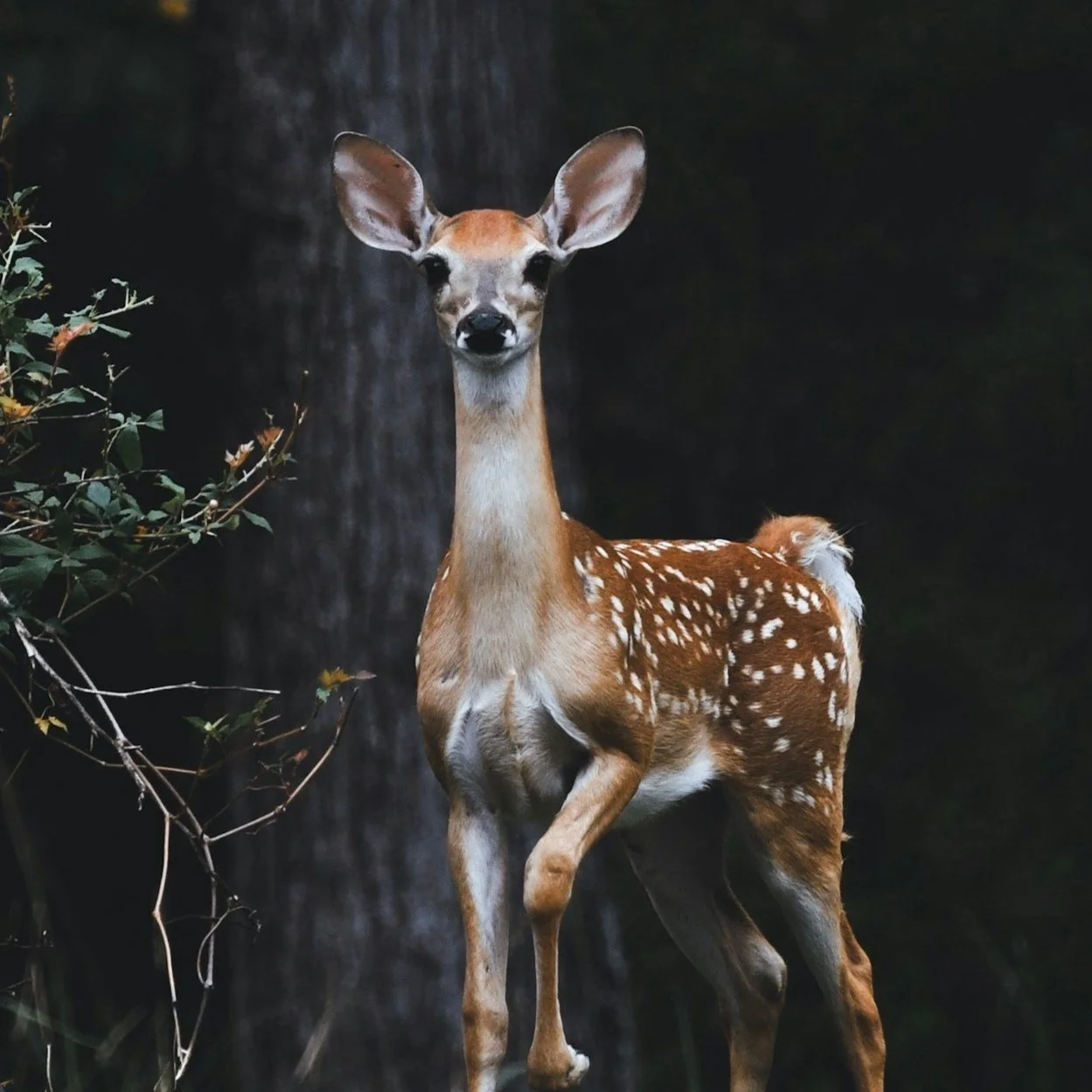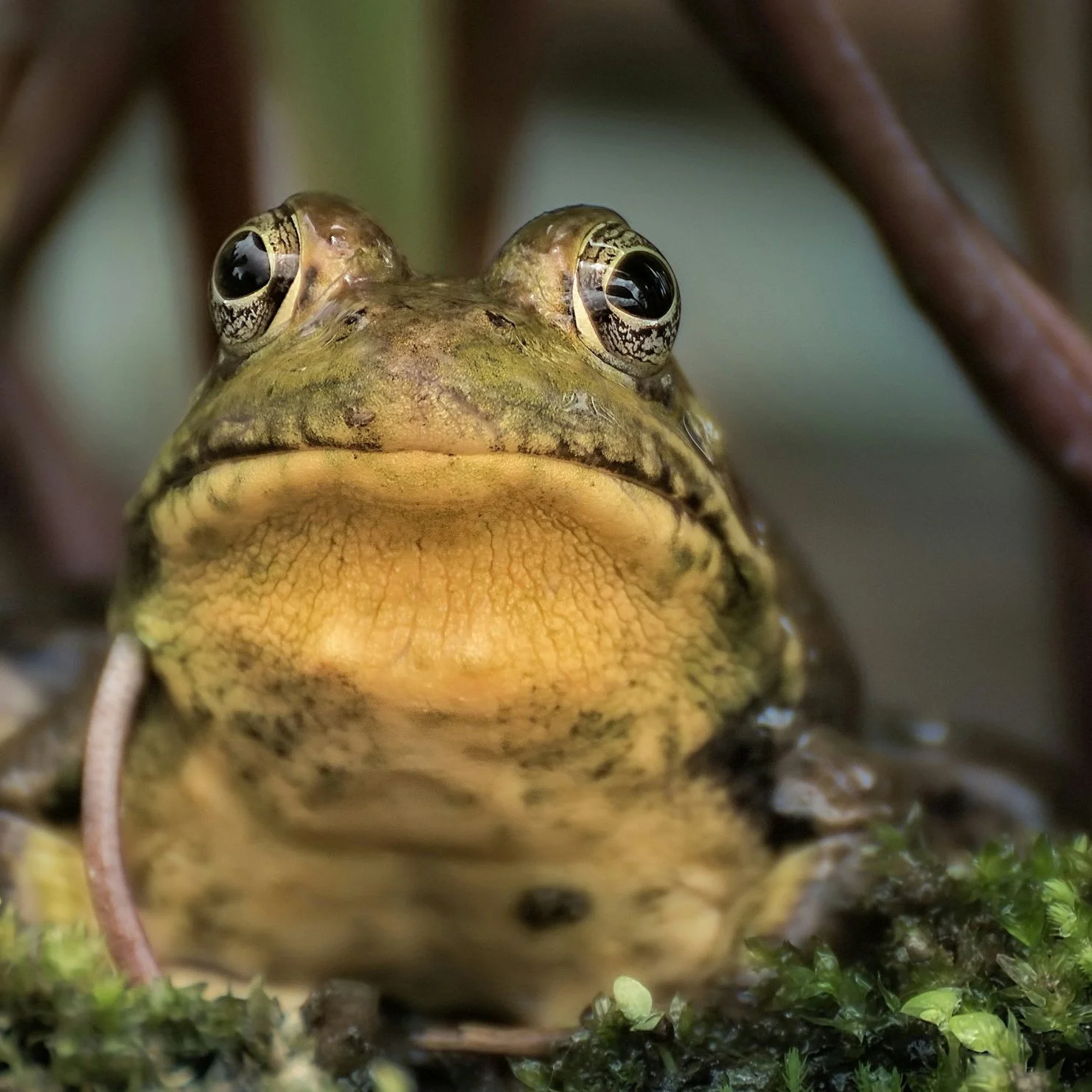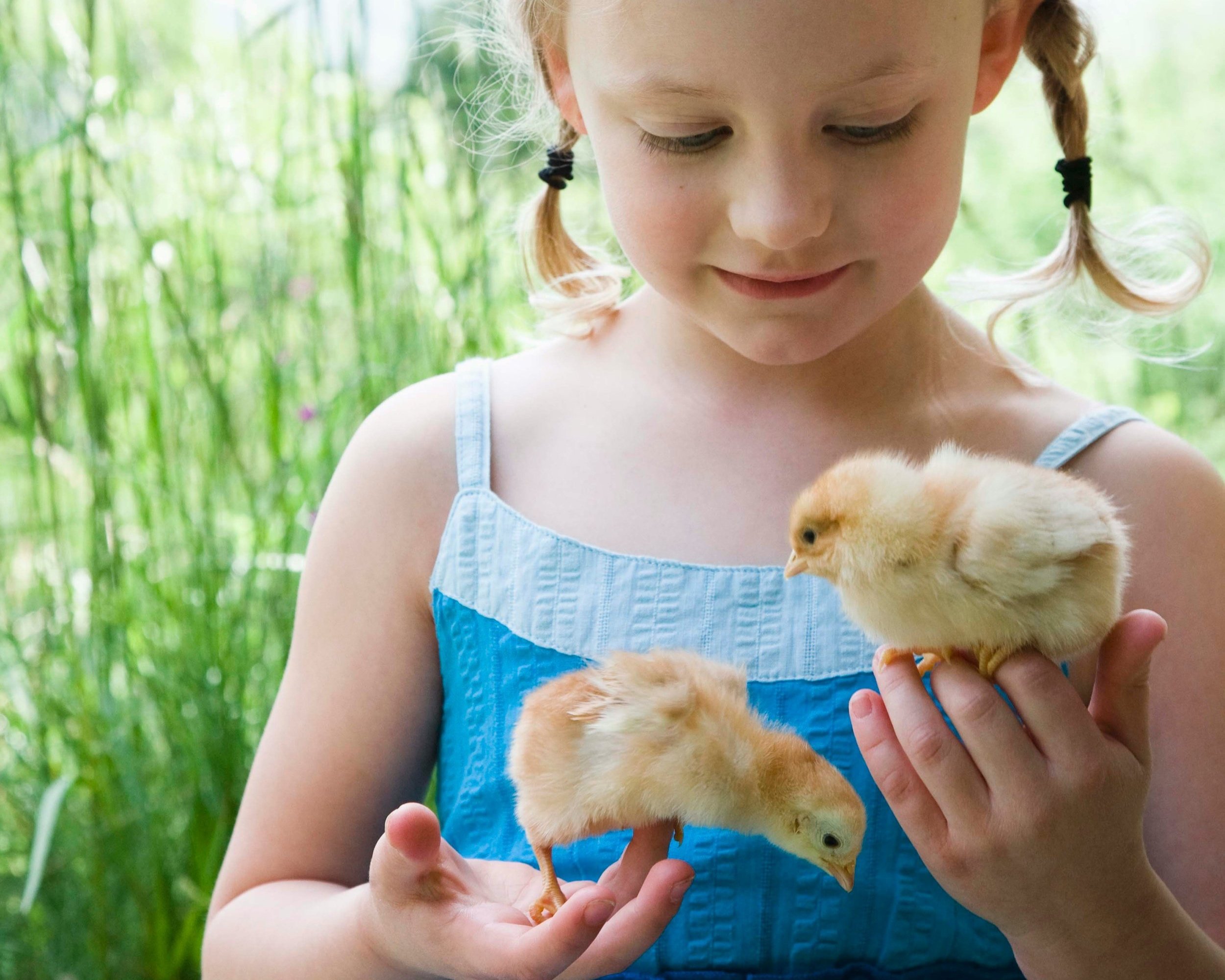
Education
Humane education is broadly defined as the teaching of compassion and empathy for all living beings and respect for the natural spaces in which they live.
OAA promotes humane education in Ohio communities to enhance the human-animal bond and develop the link between kindness to animals and nurturing healthy relationships with others. Teaching children humane education is critical for the development of social-emotional learning. The Ohio Department of Education has developed learning standards to teach learners to be good citizens, and humane education is a valuable way to nurture many essential prosocial skills in future generations of citizens. These skills go beyond caring for animals. Through humane education, we foster important life skills such as respect, responsibility, morality, and care for others. Our society needs strong, empathetic leaders who can drive change, and we believe this is possible through the inclusion of humane education in curricula from a young age.
Please review our comprehensive library of education resources below for lesson plans, books, teaching tools, and much more to learn how you can incorporate humane education in your home, classroom, library, and community. Stay tuned for more exciting opportunities as we continue to grow our education program in the coming months!
Humane Education Resources
-
Animal Welfare Institute - Children's books
BCSPCA - Book recommendations organized by picture books, novels, and nonfiction
Cherry Lake Publishing - Nature’s (Secret) Superheroes book series
Farm Sanctuary - Recommended books about our food system
Freedom Chaser - Humane-themed books for all ages
The Gryphon Press - Humane-themed children's books
HEART - Humane books organized by issue and age
Humane Society of Huron Valley - Humane education children’s books
Institute for Humane Education - Children's books with humane themes
Lakes Animal Friendship Society - Children’s books (including free e-books)
Lantern Publishing and Media - Humane education books
A Mighty Girl - Empowering books about animals and nature
Napa Humane - Humane reading list
National Humane Education Society - Recommended reading list
Project Chimps - Reading list
Red Rover - Recommended books with humane themes
Stone Pier Press - Humane-themed books
Tails That Teach - Compassion-centered books
TeachKind - Humane books and resources
Team Kindness - Book club list of recommended books
World Animal Protection - Children’s books
Zoe Weil Books - Author and Co-Founder of Institute for Humane Education
-
Bruckner Nature Center - Wildlife conservation center and trails in Troy
Compassionate Acres Farm Sanctuary - Rescues farmed animals and senior dogs in Newark
Glen Helen Nature Preserve - Environmental education, raptor center, and trailside museum in Yellow Springs
Happy Trails Farm Animal Sanctuary - Tours and interactions with rescued farmed animals in Ravenna
Learning Tree Farm - Hands-on, nature-based education with many programs in Dayton
The Ohio Bird Sanctuary - Tours and presentations to support native birds in Mansfield
Ohio Wildlife Center - Programs about environmental conservation and co-existing with wildlife in Columbus
Sunrise Sanctuary - Sanctuary for farmed and companion animals in Marysville
Walking Wild - Fox rescue and wolf dog sanctuary in Central Ohio
Whispering Acres Farm Animal Sanctuary - Farmed animal sanctuary in Medina
The Wilds - Conservation center for threatened and endangered species in Southeast Ohio
OAA Real Ohio Tours - An initiative in which OAA invites Ohioans to tour animal sanctuaries and other organizations across Ohio:
Butternut Farms Wildcat Sanctuary - Caring for Big Cats (2023) (2022)
Columbus Humane Essential Care Center - Veterinary Care and Pet Food Pantry (2024)
Fox Tale Sanctuary - Fox Rescue and Education
Glen Helen Raptor Center - Raptor Rehabilitation (2024) (2023)
Good Sprout Rescue and Sanctuary - Ending Animal Exploitation (2022)
Homeless to Home Animal Rescue and Cat Sanctuary - Preventing Animal Suffering and Homelessness
Hospets - Aiding Senior Citizens in Caring for Their Pets (2022)
Last Chance Corral - Saving Foals from the Horse Breeding Industry (2023)
Moonshot Farms - Caring for Neglected and Abused Farm Animals (2022)
Sunrise Sanctuary - Caring for Neglected and Abused Farmed Animals (2024) (2023) (2022)
Walking Wild - Ending Fur Farms (2024) (2023) (2022)
-
Animal Sheltering - List of grant opportunities
Candid Foundation Center - Online directory of funding sources
Culture and Animals Foundation - Grants for animal projects and research
Animal Place’s Food for Thought - Grants for vegan events and menu policies
Jane Goodall Institute Roots and Shoots - Mini grants for educators
The Latham Foundation - Grants for humane education outreach and research
National Environmental Education Foundation - US grants and awards
Ohio Veterinary Medical Licensing Board (OVMLB) - Veterinary student loan repayment program
The Pollination Project - Daily seed grants for social change agents
US EPA - US grants for environmental education projects
VegFund - Grants for advocates and organizations
-
Academy of Prosocial Learning - Empathy curriculum (ages 2-13)
American Humane - Teaching materials (grades PreK-5)
Animal Humane Society - Lesson plans and activities for elementary (K-5), middle (4-8), and high (9-12)
Animal Welfare Institute - Lesson plans and activities in English and Spanish (grades K-6)
AnimaLearn - The Science Bank lending library of teaching tools (grades PreK+)
Audubon Adventures - Classroom curriculum (grades 3-5)
BioLEAP - Student Action Packet and Teacher Action Packet
BCSPCA - Lessons and activities (grades K-12)
Cornell Lab of Ornithology - Lessons and activities (grades K-12)
Farm Sanctuary - Animal rights curriculum (grades K-12)
Center for Healthy Minds - Kindness curriculum in English and Spanish
Challenging Assumptions - Empathy-building secondary curriculum (grades 9-12)
HEART - Comprehensive lessons and activities (grades PreK-12)
Humane Society of Missouri - Lesson plans for teachers (grades K-6)
The Humane Society of the United States - From Nose to Tail curriculum (grades K-5)
Institute for Humane Education - Lesson plans and teaching resources repository
Jane Goodall - “Roots and Shoots” lessons and resources for all ages
Kind News - Animal-themed lesson plans
Lakes Animal Friendship Society - Discussion and activity guides
Maddie's Fund - Maddie’s Tail Wag activities in English and Spanish
Michigan Humane - Lesson plans in English, Spanish, and Arabic (grades 3-5)
MSPCA Angell - Lesson plans (grades K-12)
The Mutt-i-Grees Curriculum - Social-emotional learning program (grades PreK-12)
National Anti-Vivisection Society - High school curriculum (grades 9-12)
The National Humane Education Society - Animal-themed lesson plans for all ages
Pitty Pawfessors - Lesson plans, activities, and teacher resources
Project Chimps - Worksheets, puzzles, trivia, and more activities
Random Acts of Kindness Foundation - Kindness curriculum (grades K-8)
RSPCA - Lesson and activity library
SAFE for Animals - Animals and Us textbooks
Species Unite - Wolves in schools education program
TeachKind - Animal protection lesson plans and activities (grades PreK-12)
Share the World - All-inclusive social-emotional learning toolkit for animal protection (grades K-5)
United Federation of Teachers - Humane education committee resource guide
Voiceless: Animal Protection Institute - Animal Protection Education (APE) curricula
World Animal Protection - Activity books and quizzes
-
Animal Sheltering - Magazine for animal welfare professionals
Animal Voice South Africa - Magazine, books, DVDs, and more
Animal Welfare Institute - Free publications
AnimaLearn - Online resources about animals used in education
Brooks Institute for Animal Rights Law & Policy - Animal Markets and Zoonotic Disease in the United States
Center for Building a Culture of Empathy - Online magazine
Children and Nature Network - Environmental education publications
Earth Island Journal - Quarterly environmental periodical
FIAPO - Animal-focused reports and materials
Global Education Magazine - Inspired by United Nations SDGS
Greater Good Magazine - Science-based insights and education tools
Green Teacher Magazine - Environmental education publication
The Gryphon Press - Humane-themed children's books
Institute for Humane Education - Solutionary guidebook
International Fund for Animal Welfare - Cats, Dogs, and Us education program (grades K-2)
Kind News - Humane education magazine from RedRover
Lakes Animal Friendship Society - Newsletters
The Latham Foundation - The Latham Letter and several print publications
Project Coyote - Downloadable publications
TeachKind - Free pnimal protection education materials
Texas Humane Legislation Network - Passing a Tethering Ordinance In Your Community
ThinkKind - Free Australian publications for kids
United Federation of Teachers - Humane education committee resource guide
University of Huddersfield - The Financial Impact of Pet Ownership in Rental Properties
YEA Camp - Beginner's Guide to Changing the World
-
Academy of Prosocial Learning - Certified Humane Education Specialist (CHES) credential program
Alley Cat Allies - How to advocate for humane laws and policies for cats in your community
Association of Professional Humane Educators - Learning opportunities for members
Charter for Compassion - Compassion courses and certificates
Cornell Lab of Ornithology - Workshops, retreats, webinars, and online courses for educators
Earth Force - Professional development and teaching tools
FAADA - “Educacion Humanitaria” online humane education course in Spanish
Green Teacher - Environmental education webinars and video series
Healing Species - Compassion education program intercepts crime and violence through an 11-week education curriculum incorporating rescued dogs
HEART - Teacher trainings, in-service workshops, and webinar series
Humane Education Coalition - Humane Summit speaker series
HSUS - Free recorded webinars in humane education and other topics
Institute for Human-Animal Connection - Certificates and courses
Institute for Humane Education - Graduate programs and solutionary program training
Nature Explore - Research-based workshops and leadership institute
Project Learning Tree - Trainings, workshops, and online courses
Red Rover Readers - Educator training
Roots and Shoots - “Growing Compassionate Kids Through Service Learning” course
TeachKind - “Key Elements of a Humane Education Lesson Plan” webinar
Texas Humane Legislation Network - Passing a Tethering Ordinance In Your Community
World Animal Net - Animal advocacy course
World Animal Protection - Animal welfare training
-
Animal Charity Evaluators - Research library organized by category
Animal Sentience - Interdisciplinary journal on animal feeling
Animals and Society Institute - Human-animal studies research
Anthrozoos - Multidisciplinary journal of the interactions of people and animals
CASEL - Social-emotional learning research collections
Children and Nature Network - Research library
Earthwatch Institute - Scientific research to support environmental conservation
Education Resources Information Center (ERIC) - Digital library of humane education research
Faunalytics - Library of research about animal issues and advocacy
Frameworks Institute - Research on many humane education topics
Green Schools Catalyst - Research journal for sustainable schools
Habri Central - Research and collaboration on the human-animal bond
Humane Education Coalition - International Journal for Humane Education
Humane Education Commons - Research repository for humane education
Institute for Humane Education - Humane education research in resource center
Institute for Science and Policy - Animals studies repository
Interniche - Animal studies database of alternatives in science education
NAAEE - Research database and resources for environmental education
Stanford University - Center for compassion and altruism research and education
University of Wisconsin-Madison - Well-being and prosocial behavior research
World Animal Net - Humane education pilot program research study
-
Alley Cat Allies - Educational resources
American Humane - “Be Kind to Animals” kindness pledge, teaching sheets, and more
AnimalLearn - Resources for alternatives to animal dissection
Animals and Media - Style guidelines and educational resources
Animals and Society Institute - Humane education resources
Animal Welfare Institute - Humane education resources
Audubon for Kids - DIY activities, classroom curriculum, and interactive learning experiences
BCSPCA - Hybrid learning library, school club guides, teacher guides, and more
Be Kind - A Visual History of Humane Education: 1880 - 1945
Be the Change - Interactive humane education museum
Best Friends Animal Society - Humane education resources
Brighter Green - Policy, research, videos, and media
CASEL - Clearinghouse for social and emotional learning
Choose Kindness - Resources for parents, teachers, and students for teaching kindness
Cornell Lab of Ornithology - Nature education resources
Crustacean Compassion Children’s Corner - Engaging activities about crustaceans to inspire animal advocacy and compassion for marine animals
Greater Good in Education - Resources for kinder, happier schools
HEART - Resource library
Institute for Human-Animal Connection - Assessment tools and resources
Institute for Humane Education - Resource center
Jane Goodall's Good for All News - Positive stories about wildlife
Lakes Animal Friendship Society - Humane education resources
Mercy for Animals - Education and outreach tools
National Link Coalition - Resource center
National Anti-Vivisection Society - Science education tools
Ohio Wildlife Center - Education center
RedRover - Resource library
Roots and Shoots - Youth service resources for educators
SPANA - Education portal
Tamarack Institute - Resource hub
TeachKind - Resources for teaching about animal protection
Team Kindness - Resources for teaching about animal protection
Voices for Biodiversity - Global conservation articles and stories
We Animals - Photography archive of our relationship with animals
World Animal Net - Resource collection
World Animal Protection - Animal facts
YEA Camp - Resources for youth activism
YES! Magazine For Teachers - Resource links
-
Alley Cat Allies - All About Community Cats
Alley Cat Allies - YouTube channel on community cats
Animals & Society Institute - Defining Humane Education
Charleston Animal Society - Virtual learning and videos
City of Fort Wayne - Humane education videos
Cornell Lab of Ornithology - A WonderGrove for Birds Video Series
Educated Choices Program - Video library about food, animal agriculture, and climate change
Farm Sanctuary - Pre-recorded presentations
Farm Sanctuary - Recommended films about our food system
HEART - Educational videos
Humane Society of Marion County - Humane education videos
Institute for Humane Education - What is Humane Education?
Lakes Animal Friendship Society - Book readings and animal care project videos
Latham Foundation for the Promotion of Humane Education - Videos
New Roots Institute - Videos and CultureShift Conversations
NOCO Humane - Instructional videos
Oxford Animal Ethics - Humane Education: Increasing Sensitivity to Animals and Humans
Pasado’s Safe Haven - Humane education program videos
Project Chimps - Kids reading series videos
TeachKind - Their Future in Your Hands
West Suburban Humane Society - Kid’s Corner online education videos
World Animal Protection - Educational videos about animals


More Information
-
Humane education encourages cognitive, affective, and behavioral growth through personal development of critical thinking, problem solving, perspective taking, and empathy as it relates to people, animals, the planet, and the intersections among them. Education taught through the lens of humane pedagogy supports more than knowledge acquisition, it allows learners to process personal values and choose prosocial behaviors aligned with those values.
-
Humane education teaches kindness, develops empathy, and cultivates compassion toward animals, people, and the natural world. Students gain the knowledge and tools to make more informed and socially responsible choices that counteract real-world problems.
Why does humane education matter?
Reduces violence by addressing the troubling link between violent acts towards animals and interpersonal violence.
Harnesses young people’s natural fascination and affinity with animals as a foundation for building compassion, respect, and social and emotional learning.
Strengthens academic engagement and has measurable impact on increasing prosocial behaviors of students.
HEART, 2024
-
Humane education is a field of study that draws connections between human rights, animal protection, and environmental sustainability. Humane education prepares people to be solutionaries who are able to identify unjust, inhumane, and unsustainable systems and create solutions that enable people, animals, and nature to thrive.
The Four Elements of Humane Education:
To ensure that people have the skills and experiences to be solutionaries, humane educators help others:
1. Acquire knowledge by preparing them to be enthusiastic and effective researchers who are able to obtain accurate information about interconnected local and global challenges and discern facts from opinion and conjecture.
2. Think deeply by developing their critical, systems, strategic, and creative thinking skills.
3. Make compassionate and responsible choices by fostering wonder and appreciation for the natural world; empathy for people and animals; and commitment to doing the most good and least harm.
4. Focus on solutions by providing opportunities to collaboratively engage in problem-solving; implement ideas; and assess and improve upon them.
-
Children trained to extend justice, kindness, and mercy to animals become more just, kind, and considerate in their relations to one another. Character training along these lines in youths will result in men and women of broader sympathies; more humane, more law-abiding, in every respect more valuable citizens. Humane education is the teaching in schools and colleges of the nation the principles of justice, goodwill, and humanity toward all life. The cultivation of the spirit of kindness to animals is but the starting point toward that larger humanity that includes one's fellow of every race and clime. A generation of people trained in these principles will solve their international difficulties as neighbors and not as enemies.
US National Parent-Teacher Association Congress, 1993
“Teaching a child not to step on a caterpillar is as valuable to the child as it is to the caterpillar.”
— Bradley Miller








